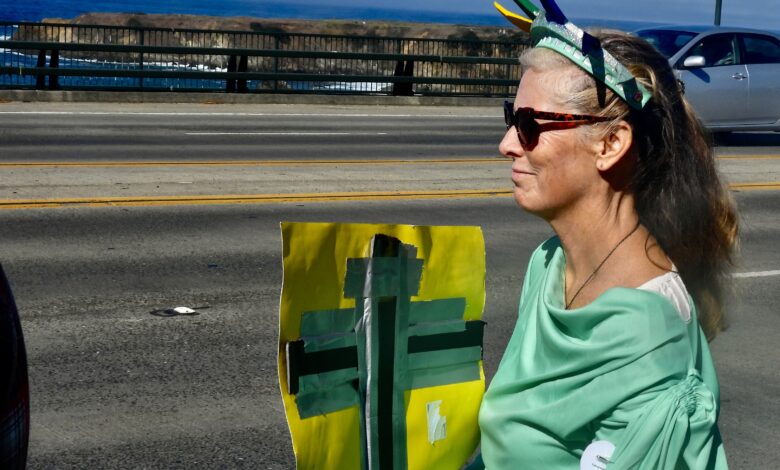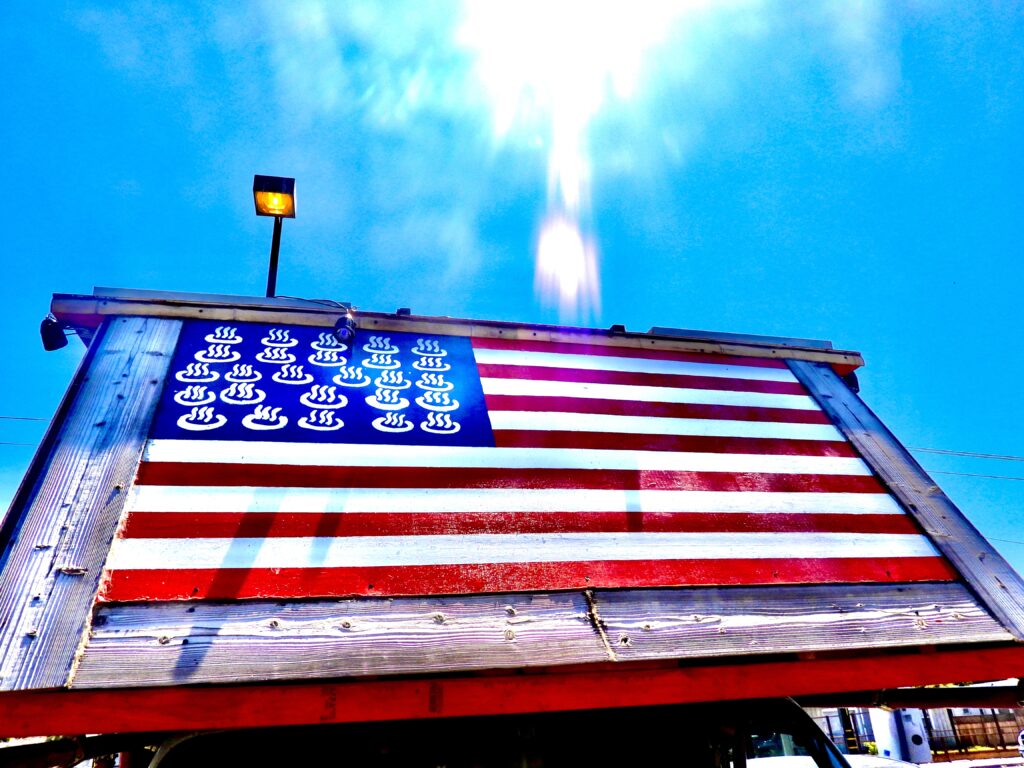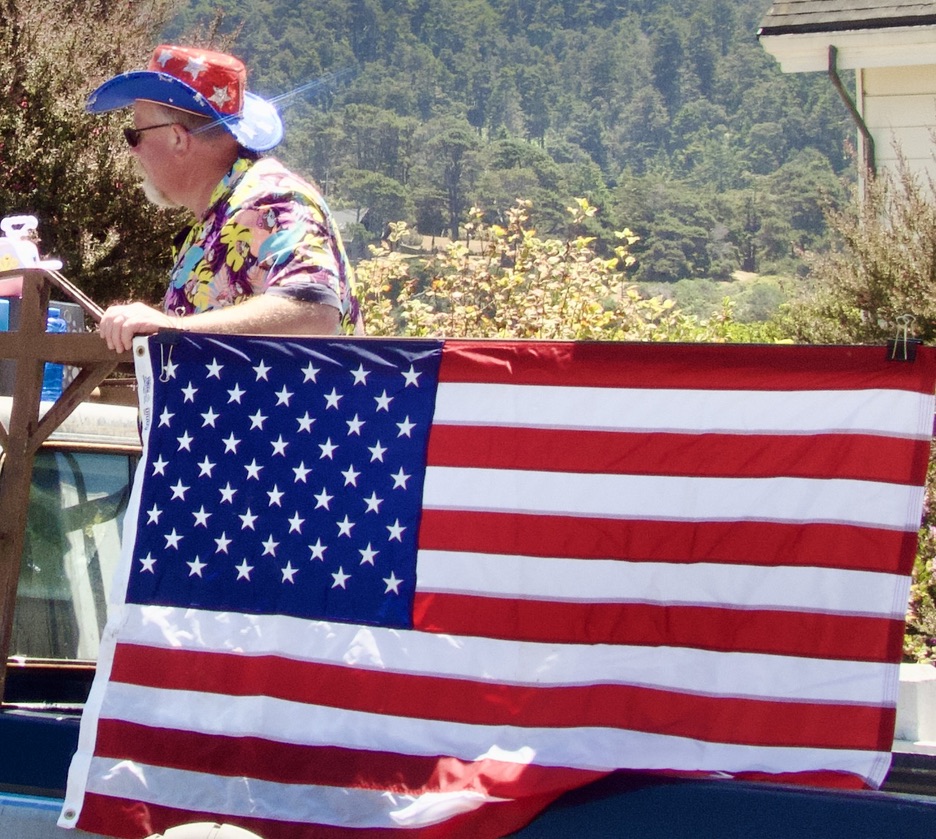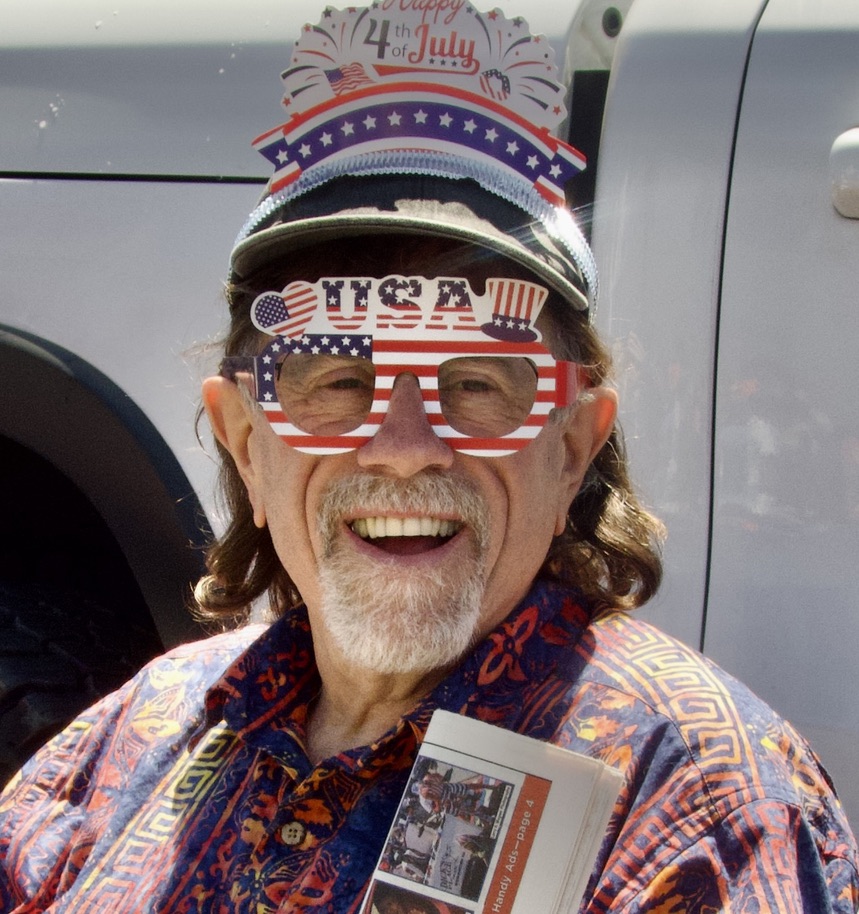Be a Yankee Doodle—vote today with the hope of a Revolutionary and the resolve of a Tory

Today is a day for courage. A day to be an American. A day to VOTE.
I say VOTE YES and help save our country. But even if you vote no—VOTE. Because this isn’t just about policy. It’s about showing up for democracy.
Most of us have already cast our ballots. But today, we celebrate the act itself: Voting—our great American revolutionary ritual.
Back in 1777, Americans were either Patriots or Tories. They supported the King, or they supported revolt. But both, in their own way, were lovers of America. They believed in something worth fighting for.
So do we.This is a day to be a courageous American and VOTE!!! I say VOTE YES and save our country. But even if you vote no, VOTE!! Of course, most of us already have, but this is the day to celebrate that great and American revolutionary act, VOTING! You must! In 1777, Americans were either Patriots or Tories. They supported the King or they supported revolting against the king!! Both were lovers of America to me.
Just give up? If that’s what you think, you lose all right to call yourself American.
Americans don’t give up
I’ve always been an idealistic, flag-waving American—just as loony as that old guy playing Yankee Doodle. Nobody thought he had a chance. Too old for George Washington’s army, so he grabbed a flute and marched anyway.
He and the Patriots took “Yankee Doodle”—a British insult meant to mock us—and made it our anthem. They turned a barroom taunt into a battle cry. We didn’t just take the name. We took the tune. And we made it ours.
When Lord Cornwallis surrendered to General George Washington, he ordered his band to play “The World Turned Upside Down.” In response, the jubilant colonial army answered with not one, but several rousing choruses of “Yankee Doodle.”
It was impossible. But it happened.
And it won’t happen again if Americans give up and don’t vote.
We may have been mocked as “Yankee Doodles”—foolish, ugly, naïve. And in 2025, some say we’ve lived down to that insult. But we still share something vital: hope.
Hope is our birthright. Our patent. Our secret weapon.
It’s what made us transcendent. It’s what carried American troops across oceans to rescue England and its king in World War I and World War II—flutes and all.
So vote. Not just because it’s your right. But because it’s your revolutionary act.
On this day, I feel as revolutionary in spirit—though not in practice—as John Brown. He and his sons attacked a U.S. Army arsenal in a desperate stand against slavery. They were hanged for it, after a wave of violence sparked by the same kind of entrenched immorality and white supremacy we still wrestle with today.
I’m not calling for violence. I’m calling for courage.
Because the stakes remain high. And the fight—for justice, for dignity, for a better America—is still ours to carry forward.
But I’m peacefully hopeful—and I reject John Brown’s violence—just as Martin Luther King did.
When the Klan bombed his home and injured his family, he faced down an angry crowd ready for vengeance. He laid himself in the road and said, in essence: “You can take your bats and go have a bloody day of mutual killing with the Klan. But I have one condition—kill me first. Because in doing so, you’ll destroy everything I stand for. You’ll end my hope.”
That kind of courage—nonviolent, unwavering, transcendent—is the spirit I carry today.
They didn’t kill that day—and we must never choose violence either.
On this day, I carry more hope.
I hope to be as courageous and steadfast as the Tuskegee Airmen—patriots all—who believed in a country that persecuted them, and still chose to fight for it. They soared like Greek gods of the air.
For years, the Army refused to let them fight. But they trained anyway. Practiced anyway. Hoped anyway.
And when the Army finally buckled and sent them into combat, they were ready. Ready enough to become the best aces of World War II—swatting German planes from the sky like flies.
At that point, Germany was sending up teenagers. But those teenagers had been killing our bomber crews—until the Airmen arrived.
They didn’t just protect our bombers. They protected our belief in what America could be.
I will never support upside-down flags, scribbled flags, or any tampering with the American flag—whether by police, firefighters, or anyone else. That flag is sacred. It belongs to all of us.
These altered flags often come from those who seem to have given up on the American Dream—claiming their corner of the country is the truest, the most red, white, and blue. Except, of course, when they’re adding other colors or turning it askew.
I stand with the Patriotic American protesters who show their dissent peacefully, in the spirit of our founders. That’s the kind of courage I admire.
And I love the family who puts out all the flags on every patriotic holiday—on the west side of State Route 1, just past Green Acres, between Cleone and Fort Bragg. Bless them. They bless me.
Today, I love all Americans—just as our soldiers have always loved their comrades. Not their generals. Their comrades.
Stephen Ambrose spent a lifetime documenting this truth: American troops were the only ones who would almost always gather a team to go back and save a wounded brother. Others left him to die. We went back.
Back at the barracks, they fought—sometimes to blows—over Giants vs. Dodgers, Roosevelt vs. Landon, and whether Black soldiers should finally be welcomed into their brotherhood. But when a man went down, none of that mattered.
It didn’t matter his politics. It didn’t matter if he was a Yankee or a Rebel at heart. They went back for him.
We loved each other.
Back in the 70s Charlie Daniels sang a song about this…
Well the eagle’s been flyin’ slow
And the flag’s been flyin’ low
And a lotta people sayin’ that America’s fixin’ to fall
Well speakin’ just for me
And some people from Tennessee
We’ve got a thing or two to tell you all
This lady may have stumbled
But she aint never fell.
And if the Russians don’t believe that
They can all go straight to hell
We’re gonna put her feet back
On the path of righteousness and then
God bless America again
Chorus:
And you never did think
That it ever would happen again
( In America, did you )
You never did think
That we’d ever get together again
( We damn sure fooled ya )
Yeah, we’re walkng real proud
And we’re talkin’ real loud again
( In America )
You never did think
That it ever would happen again
From The Sound up in Long Island
Out to San Francisco Bay
And everthing that’s in between them
Is our home.
And we may have done a little bit
Of fightin’ amongst ourselves
But you outside people best leave us alone
‘Cause we’ll all stick together
And you can take that to the bank
That’s the cowboys and the hippies
And the rebels and and the yanks
You just go and lay your hand
On a Pittsburgh Steelers’ fan
And I think you’re gonna finally understand

On this day, November 4, 1777, George Washington—perhaps the greatest American leader of all time—faced a quiet coup.
As commander of the Continental Army, Washington was challenged by his top general, Horatio Gates, and a fierce Irish war hero named Thomas Conway. They saw Washington’s inclusionary leadership as weakness. But Washington knew better. He understood that compromise is strength.
They took their grievances to Congress. Washington, frustrated by the distraction, put the rebellion down—not with fury, but with grace. He kept both men at their posts. No other leader in history could have pulled that off with such quiet power.
Today, we have a president who sees compromise and inclusion as signs of weakness. I’d love to see George Washington trump him—in a battle of wits, of morality, of anything. anything.
Washington didn’t behead those who tried to depose him. He made them keep working—and made sure they never tried it again. That’s the mark of a truly great leader.
He didn’t stop compromising. He didn’t stop including.
He brought Thomas Paine—atheist, journalist, intellectual—to Valley Forge. While aristocrats like Gates couldn’t stomach the winter, Washington’s most committed stayed through the deathly cold.
Brigades of ferocious Scotsmen from the hills of what we now call West Virginia, Tennessee, and Georgia stayed. So did the Green Mountain Boys from Vermont, the New Yorkers, and the Minutemen.
They were Patriots. They were committed.
And so was Paine, who stayed all winter, lifting spirits with speeches and stubborn hope.

Thomas Paine—a failed corset maker who’d gone bankrupt and landed in debtor’s prison—became one of America’s most beloved patriots. Despite his high-mindedness and outspoken atheism, he was embraced for his boundless courage and unshakable hope.
He didn’t just write revolution. He lived it.
During the previous winter, Thomas Paine—known to the troops as “Mr. Common Sense” for his fiery editorials—wrote The Sunshine Soldier. At the time, General Washington had suffered defeat after defeat. The British were partying in New York, mocking the ragged Yankee Doodle Dandies who were half-starved and freezing in what looked like a hopeless cause.
On a bitter January day, Washington read Paine’s words aloud to the men who had stayed—despite frostbite, hunger, and the brutal misery of that New Jersey winter. They had lost fingers and toes, but not their resolve.
Paine’s pamphlet lit a fire in their hearts. It’s a great work to hear right now.
If only we had a leader like Washington to read it to us.
Listen to it. Let it echo. And stop giving up hope.
We are Americans.
Here it is:
THESE are the times that try men’s souls.
The summer soldier and the sunshine patriot will, in this crisis, shrink from the service of their country; but he that stands by it now, deserves the love and thanks of man and woman.
Tyranny, like hell, is not easily conquered; yet we have this consolation with us, that the harder the conflict, the more glorious the triumph.
What we obtain too cheaply, we esteem too lightly: it is dearness only that gives everything its value.
Heaven knows how to put a proper price upon its goods; and it would be strange indeed if so celestial an article as FREEDOM should not be highly rated. Britain, with an army to enforce her tyranny, has declared that she has a right (not only to TAX) but “to BIND us in ALL CASES WHATSOEVER,” and if being bound in that manner is not slavery, then is there not such a thing as slavery upon earth.

Even the expression is impious; for so unlimited a power can belong only to God.
(Thomas Paine—the atheist who meant every word—was no armchair radical. He inspired the French Revolution and, astonishingly, urged them to restore the Christian God to their cause—not out of piety, but to preserve the moral compass of liberty. For that, he was arrested, jailed, and sentenced to the guillotine. Only a twist of fate and the intervention of sympathetic Jacobins spared his life.
Paine despised slavery. He believed that once freedom was granted to white men, it would—eventually—be extended to Black Americans, and then, most improbably of all, to women. He even imagined a future where animals might be granted rights.
He had hope—radical, unreasonable, incandescent hope.
Here is a story we wrote exactly one year ago today. Please check it out. These two Mendocino County men were willing to give their lives as among the first to die for their country in World War II. They hoped we could do better than fight on social media.
Why is our flag important? Ask the Iversens, who never came back to the Mendocino Coast
Hope that burned among revolutionaries who believed in freedom over feudalism, even as many of them still held slaves. Hope that refused to die, even in the face of hypocrisy, imprisonment, and exile.
Paine believed that if we could just catch the spirit of that first revolution—if we could remember what it meant to risk everything for a better world—we might still build the future he dreamed of.
So let us remember. Let us reclaim that Revolutionary spirit—not with muskets, but with ballots. Not with blood, but with courage. Not with cynicism, but with hope.
Because we are Americans. And hope is our oldest, fiercest weapon
